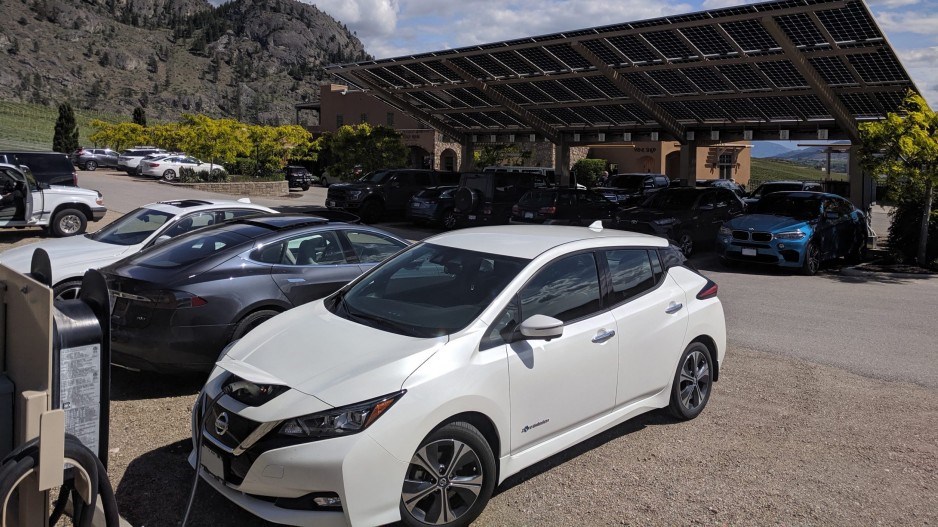While the pandemic may have delivered some jitters to the B.C. economy last year, it appears the market for electric vehicles (EV) in the province got a bit of a jolt.
The province added 20,000 new EVs to its roads last year amid an ongoing push to ensure 10% of new vehicle sales in the province are zero-emissions vehicles by 2025, according to the government’s 2020 annual zero-emissions vehicles (ZEV) update released Tuesday.
The report reveals light-body EV sales accounted for 9.4% of all new light-body vehicle sales across the West Coast — up slightly from 9% a year earlier.
In all, B.C. had 54,469 light-body ZEVs registered for its roads as of the end of 2020 — up from the 34,000 a year earlier.
The province passed its ZEV act in 2019, which has set the target of requiring all new light-duty cars and trucks sold in the province to be emissions-free by 2040.
In addition to 10% of new vehicle sales to be ZEV by 2025, the act also calls for those sales to reach 30% by 2030.
Of the total 54,469 light-body ZEVs on B.C. roads by the end of last year, 40,013 were battery electric and 14,402 were plug-in hybrids. The remaining 54 vehicles were powered by fuel cells, typically the domain of commercial vehicles.
A 2019 report prepared for Transport Canada revealed that of the 31,054 battery-electric vehicles — a separate category from the broader ZEV bucket, which also includes plug-in hybrids — registered in the country that year, 10,881 were registered in B.C.
The only other province to exceed B.C. was Quebec — which has its own ZEV mandate — with 13,378 registrations.
And while Ontario has three times the population of B.C., it recorded 5,502 registrations.
Unlike B.C. or Quebec, Ontario does not have a ZEV mandate or rebates comparable to those provinces.
“Nearly every market that has ZEV mandates also has some form of generous incentives or other subsidies,” Mark Cann, CEO and co-chief technology officer of Cryo Energy Tech, told BIV.
“Infrastructure is the trillion-dollar question that's being asked right now. Adoption of ZEVs will require massive upgrades and build-outs in infrastructure and everyone is trying to determine who will get stuck paying the bill.”
In early March, Ottawa and Bosa Properties committed $275,000 to install 34 chargers at six sites across Metro Vancouver.
Days later, the federal government said it was earmarking $2.75 billion over five years for the nation’s public transit systems to further electrify.
Part of that money will be going towards electric buses manufactured by Vancouver-based GreenPower as well as the infrastructure necessary to support the new vehicles.
Meanwhile, the province’s 2020 update also showed the total number of public charging stations had increased by 500 over the past year for a total of 2,500 across the province.
Fast-charging stations available to the general public grew from 322 in 2019 to 480 by the end of 2020.




